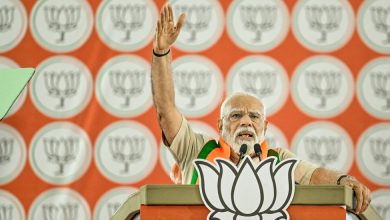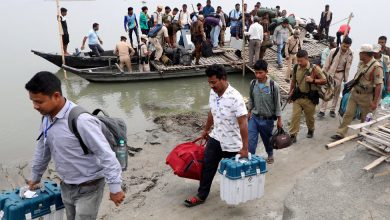Why Are Russians in Beijing if Russia Is Banned for Doping?

BEIJING — The figure skating competition at the 2022 Beijing Olympics was thrown into turmoil on Friday with the revelation that Kamila Valieva, the 15-year-old star of the Russian team and a favorite to win two golds, had tested positive for a banned substance during a competition before the Games.
Valieva helped Russia’s team win the gold medal in the figure skating team event on Monday. But Tuesday’s medal ceremony was postponed shortly before it was to begin after skating officials learned that Valieva had tested positive on Dec. 25 for trimetazidine, a heart medication that is on the World Anti-Doping Agency’s list of banned substances.
The United States finished second in the team event, and Japan was third. But those teams, and the Russians, now may have to wait for an appeals process — which may not be resolved until long after the Games — to determine the final order of finish and to receive their medals. An arbitration court in Switzerland will decide which country should be named the winner of the event, and whether Valieva will be allowed to continue competing.
In the meantime, the revelations are raising familiar questions about Russia’s presence and participation at these Olympics. The country is technically banned from the Games and other global sports competitions as a result of an earlier doping scandal, but individual athletes have been allowed to compete under the banner of the Russian Olympic Committee.

Explore the Games
- Kamila Valieva: The figure skater tested positive for trimetazidine, a banned medication, weeks before powering the Russian team to an Olympic win. We’ve answered your questions about the drug in question.
- Measuring the Medals: Which country is doing best might depend on who’s counting — and how.
- Embracing Mental Health: The echo from Simone Biles’s public struggles in Tokyo is being felt by athletes in Beijing.
- Olympic Sensation: Nathan Crumpton, the flag-bearer for American Samoa who competes in skeleton, lit up the internet when he appeared shirtless at the opening ceremony.
Why is Russia banned?
In December 2019, the World Anti-Doping Agency barred Russia from international sports competitions after concluding that it had orchestrated and run a sprawling and state-sponsored doping scheme at the 2014 Sochi Winter Olympics.
The scheme had been active for years heading into the 2014 Olympics before one of its masterminds, Grigory Rodchenkov, the former head of a Moscow doping laboratory, came forward in 2016 to disclose the details.
The global ban came on the heels of new revelations that year of Russia’s failed attempts to cover up the earlier scandal, including through the manipulation of test samples and efforts to block access to testing its data.
What was Russia’s punishment?
The punishment, initially for four years, barred Russia from entering teams in international competitions and from bidding for or hosting them. The Russian flag and national anthem were no longer allowed at events, and some Russian sports officials were barred from attending them.
A little over a year after the original four-year punishment was handed down, however, the ban was reduced to two years by the Court of Arbitration in Sport, in Switzerland, the arbiter of global sports disputes. The ban now expires in December.
So why have Russian athletes continued to compete?
A provision in Russia’s ban allowed its athletes to compete, with special permission and as so-called neutral athletes.
In practice, then, and to the dismay of rivals and others who had called for a blanket ban on athletes from Russia, the country’s athletes can continue to compete in major international events as long as they are confirmed to be clean by the federations that govern their individual sports, and as long as they do not do so under the banner of Russia.
In Beijing, as at the Tokyo Summer Olympics last year, that means that hundreds of Russian athletes, teams and coaches are taking part. This month, it is as the Russian Olympic Committee — a technical distinction that some criticize as meaningless.
Similarly, while Russian officials are technically barred from attending the Olympics, the punishment included a provision that allows the head of state of a host nation to extend a special invitation to another head of state or government official. That allowed Russia’s president, Vladimir V. Putin, to attend the opening ceremony of the 2022 Games as a guest of his Chinese counterpart, Xi Jinping.
Will the I.O.C. reconsider its decision to let Russian athletes compete?
Such a change of heart, at least officially, seems unlikely. The I.O.C., led by its president, Thomas Bach, has adopted the often unpopular stance that individual athletes should not be punished for the actions of others, even if the action was a systematic doping scheme created and run by their national sports federations — or even their government — in search of Olympic glory.
The Olympic spokesman Mark Adams summed up the organization’s approach during a news conference on Friday in Beijing.
“Individuals are allowed to be tried individually,” he said. “We wouldn’t try a whole class of people and chuck them out on the basis of that. We give people the right to be innocent until proven guilty.”




